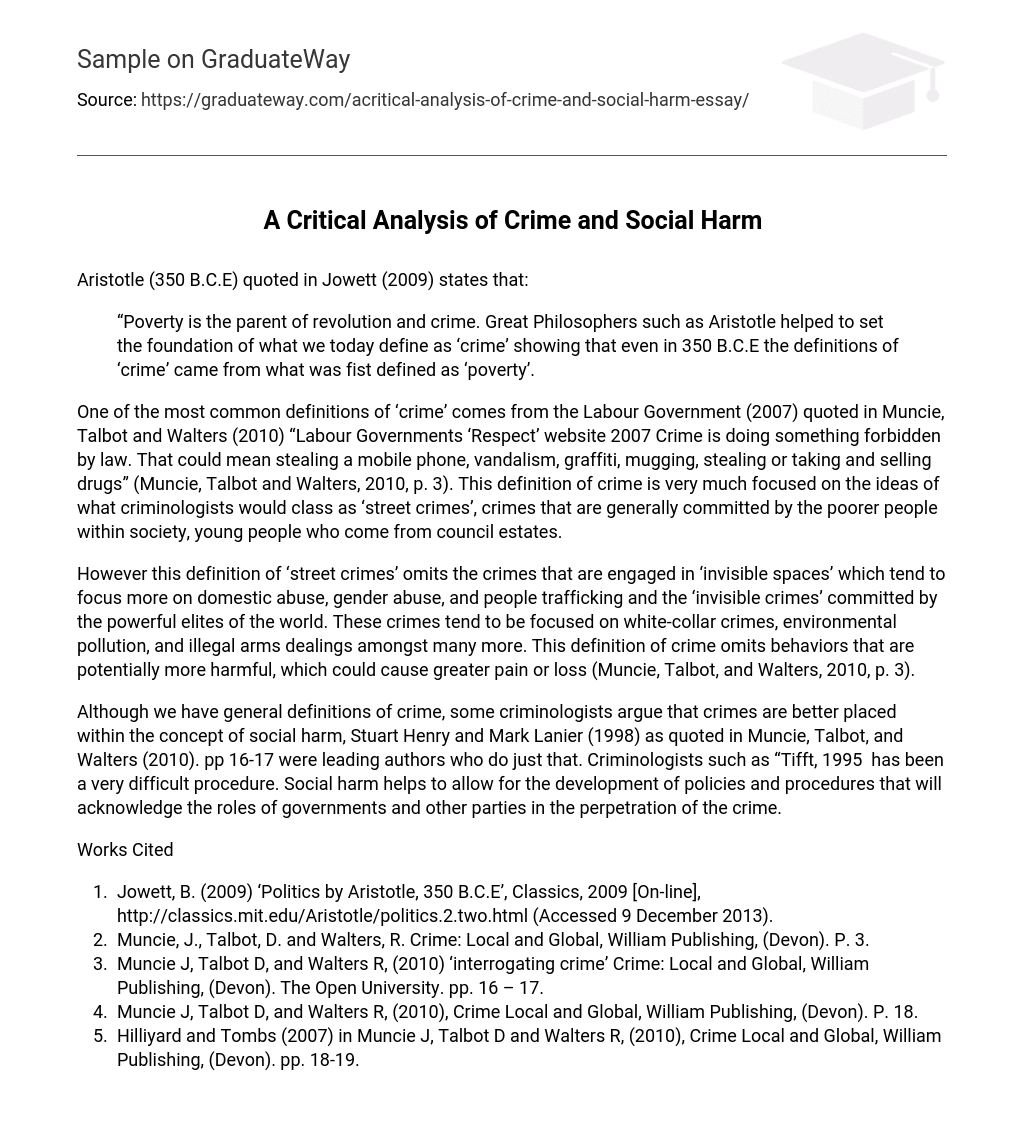Aristotle (350 B.C.E) quoted in Jowett (2009) states that:
“Poverty is the parent of revolution and crime. Great Philosophers such as Aristotle helped to set the foundation of what we today define as ‘crime’ showing that even in 350 B.C.E the definitions of ‘crime’ came from what was fist defined as ‘poverty’.
One of the most common definitions of ‘crime’ comes from the Labour Government (2007) quoted in Muncie, Talbot and Walters (2010) “Labour Governments ‘Respect’ website 2007 Crime is doing something forbidden by law. That could mean stealing a mobile phone, vandalism, graffiti, mugging, stealing or taking and selling drugs” (Muncie, Talbot and Walters, 2010, p. 3). This definition of crime is very much focused on the ideas of what criminologists would class as ‘street crimes’, crimes that are generally committed by the poorer people within society, young people who come from council estates.
However this definition of ‘street crimes’ omits the crimes that are engaged in ‘invisible spaces’ which tend to focus more on domestic abuse, gender abuse, and people trafficking and the ‘invisible crimes’ committed by the powerful elites of the world. These crimes tend to be focused on white-collar crimes, environmental pollution, and illegal arms dealings amongst many more. This definition of crime omits behaviors that are potentially more harmful, which could cause greater pain or loss (Muncie, Talbot, and Walters, 2010, p. 3).
Although we have general definitions of crime, some criminologists argue that crimes are better placed within the concept of social harm, Stuart Henry and Mark Lanier (1998) as quoted in Muncie, Talbot, and Walters (2010). pp 16-17 were leading authors who do just that. Criminologists such as “Tifft, 1995 has been a very difficult procedure. Social harm helps to allow for the development of policies and procedures that will acknowledge the roles of governments and other parties in the perpetration of the crime.
Works Cited
- Jowett, B. (2009) ‘Politics by Aristotle, 350 B.C.E’, Classics, 2009 [On-line], http://classics.mit.edu/Aristotle/politics.2.two.html (Accessed 9 December 2013).
- Muncie, J., Talbot, D. and Walters, R. Crime: Local and Global, William Publishing, (Devon). P. 3.
- Muncie J, Talbot D, and Walters R, (2010) ‘interrogating crime’ Crime: Local and Global, William Publishing, (Devon). The Open University. pp. 16 – 17.
- Muncie J, Talbot D, and Walters R, (2010), Crime Local and Global, William Publishing, (Devon). P. 18.
- Hilliyard and Tombs (2007) in Muncie J, Talbot D and Walters R, (2010), Crime Local and Global, William Publishing, (Devon). pp. 18-19.





